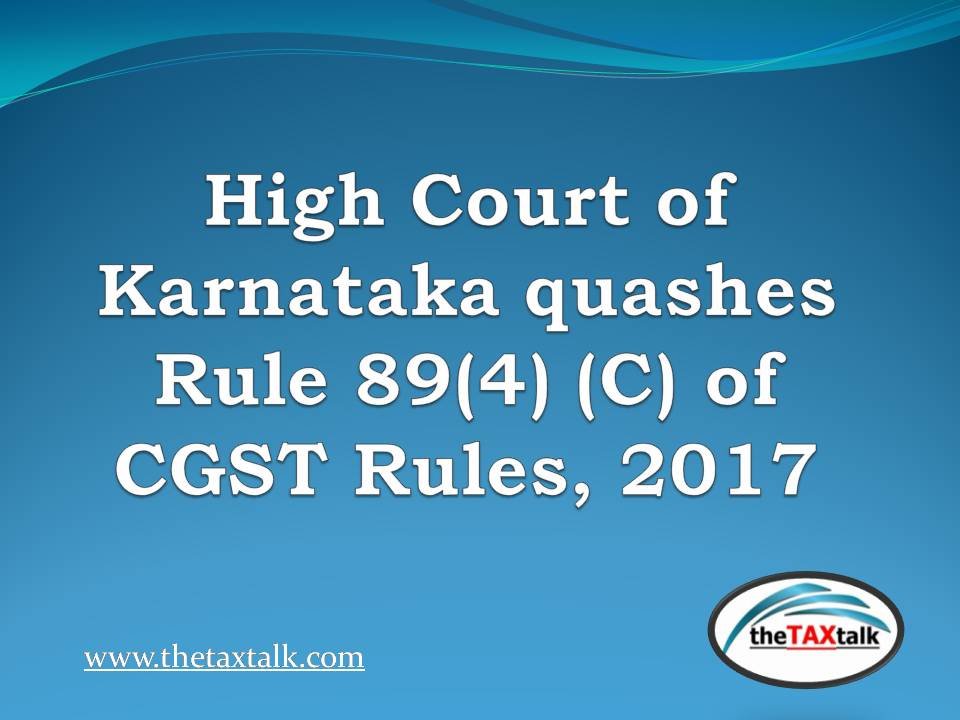![]()
High Court of Karnataka quashes Rule 89(4) (C) of CGST Rules, 2017
High Court of Karnataka quashes Rule 89(4) (C) of CGST Rules, 2017 as being ultra vires, the provisions of section 16 of IGST Act,2017 and Section 54 of the CGST Act, 2017 and also being violative of Article 14 of the Constitution.
Short overview of the case:
Petitioner exports specialized and customized imaging products and was claiming refund of accumulated ITC.
Rule 89(4)(C) of CGST Rules, 2017 which provides for computation of refund, was amended by Notification No. 16/2020-CT dated 23.03.2020, to restrict the value of goods exported to 1.5 times the value of like goods domestically supplied.
As petitioner did not have local supplies of like goods (products being customized and specialized ones), the refund was rejected.
In this background, the petitioner challenged the validity of the said amendment to Rule 89(4)(c) and also the order rejecting the refund.
The High Court held that the Rule 89(4) (C) of CGST Rules, 2017 is ultra vires, section 16 of IGST Act,2017 and Section 54 of the CGST Act, 2017 and also violative of Article 14 of the Constitution for following reasons:
- Section 16 provides for zero rating of exports (making exports tax fee). The rule whittles down the refund by placing restrictions, which goes against objective of the zero rating and therefore the amendment is arbitrary and unreasonable.
- The said amendment suffers from vice of vagueness as the phrases ‘like goods’ and ‘similarly placed supplier’ have not been defined. Further, in case of unique and customized products, there cannot be availability of like goods.
- The said amendment also lacks clarity as the said rule does not provide for consequence where there are no local supplies of like goods.
- The object of zero rating would be lost where the exports are made to suffer GST.

